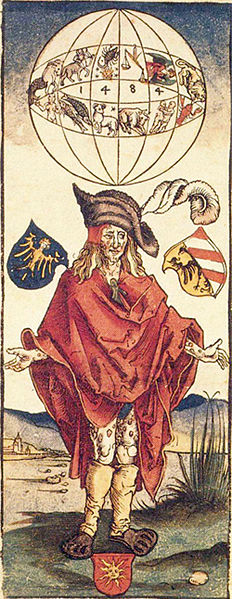Even though today is Columbus Day in the U.S., I really didn’t want to write about Christopher Columbus because I’m not a fan. But sometimes, stuff happens. I was researching something completely different and it kept leading me back to Columbus. Really, I just wanted to tell you some stuff about a horrible sexually transmitted disease.
Although this post is about Columbus, I’m not going to get into all the horrors that he and his men visited on the native peoples who welcomed him to the lands he “discovered”. You can easily find plenty of arguments on the internet about whether he was a hero or a villain. There is plenty of primary source material in the form of journals and correspondence which has been used to create both sides of this argument.
Columbus brought many gifts back to Europe from the new lands, and some historians have long believed that he and his men also brought syphilis. As schoolchildren in the U.S. we learn that “Columbus sailed the ocean blue in fourteen hundred ninety-two”. We don’t learn that the first recorded outbreak of syphilis in Europe was in 1495, not long after the explorers returned. Coincidence? Possibly, which is why historians weren’t able to prove or disprove the idea that syphilis came from the new lands.
Because of the stigma attached to sexually transmitted diseases, and because syphilis shares symptoms in common with other diseases, it’s difficult to positively identify its origins using primary sources that are more than 500 years old. Which is where science and history help each other out.

Attributed to Albrecht Dürer (1496). It is possible that this could be an early work of Durer, or just as likely the work of his master, Wolgemut. The 1484 refers to a planetary conjunction, not the date of the print. The appearance of Scorpio indicates that the author of the medical tract of which this is an illustration regarded the disease as the product of unfavourable planetary alignment. They didn’t call it syphilis then, referring to it as the ‘French’ or ‘Neopolitan’ disease. The two coats of arms to the left and the right are those of the city of Nürnberg. Photo: Wikimedia Commons
Although I don’t understand all the science, genetic studies were used on the syphilis bacteria itself to track the origins of the disease. From what I understand, the bacterial strains in Europe match those from South America. Although the studies were not entirely conclusive, and different scientists interpret the data differently, the results do lend credence to the historians’ theory.
Will we ever definitely know whether or not this disease that has killed millions was the result of European exploration? Probably not. Scientists argue with each other over interpretations just as much as historians do. And as much as I’m not a fan of Columbus, I hardly think we can blame him for something no one could have foreseen. And considering the rate of exploration throughout the world at that time, was a syphilis epidemic inevitable?

